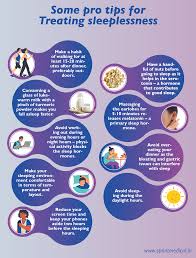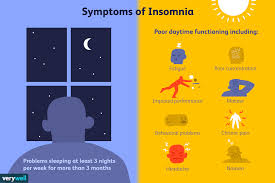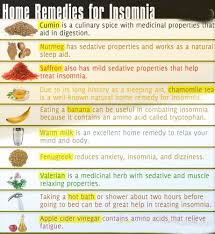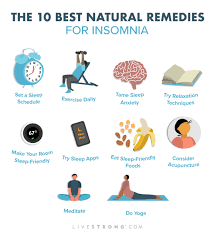The Ultimate Guide to Home Remedies for Insomnia
Insomnia, the inability to fall asleep or stay asleep, can be a frustrating and exhausting experience. While there are various medications available to treat insomnia, many people prefer natural remedies to promote better sleep. If you’re looking for effective ways to combat insomnia without relying on medication, consider trying these home remedies:
Establish a Relaxing Bedtime Routine
Create a calming bedtime routine to signal your body that it’s time to wind down. This may include activities such as reading a book, taking a warm bath, or practicing relaxation techniques like deep breathing or meditation.
Create a Comfortable Sleep Environment
Ensure your bedroom is conducive to sleep by keeping it dark, quiet, and cool. Invest in a comfortable mattress and pillows that support proper alignment of your body.
Limit Screen Time Before Bed
Avoid using electronic devices such as smartphones, tablets, and computers at least an hour before bedtime. The blue light emitted by these devices can disrupt your circadian rhythm and make it harder to fall asleep.
Herbal Teas and Supplements
Herbal teas like chamomile or valerian root can have calming effects that promote relaxation and improve sleep quality. Additionally, supplements like melatonin may help regulate your sleep-wake cycle.
Practice Relaxation Techniques
Incorporate relaxation techniques into your daily routine, such as progressive muscle relaxation or guided imagery exercises. These practices can help reduce stress and anxiety levels that may be contributing to your insomnia.
Maintain a Consistent Sleep Schedule
Try to go to bed and wake up at the same time every day, even on weekends. Consistency helps regulate your body’s internal clock and improve the quality of your sleep.
Limit Caffeine and Alcohol Intake
Avoid consuming caffeine in the afternoon and evening as it can interfere with your ability to fall asleep. Similarly, limit alcohol intake before bedtime as it can disrupt the quality of your sleep.
While these home remedies can be effective in managing mild cases of insomnia, it’s essential to consult with a healthcare provider if you have persistent sleep problems or underlying medical conditions affecting your sleep. By incorporating these natural remedies into your lifestyle and creating healthy sleep habits, you can take proactive steps towards achieving restful and rejuvenating sleep.
8 Proven Home Remedies and Lifestyle Tips to Combat Insomnia
- What are some effective home remedies for curing insomnia?
- How can I establish a relaxing bedtime routine to improve my sleep?
- What are the best ways to create a comfortable sleep environment at home?
- Are there any herbal teas or supplements that can help with insomnia?
- What relaxation techniques can I practice to promote better sleep?
- Why is maintaining a consistent sleep schedule important for treating insomnia?
- Should I limit my caffeine and alcohol intake to improve my sleep quality?
- When should I consider seeking professional help for my insomnia?
What are some effective home remedies for curing insomnia?
When seeking effective home remedies for curing insomnia, several strategies can help promote better sleep quality naturally. Establishing a relaxing bedtime routine, creating a comfortable sleep environment, limiting screen time before bed, incorporating herbal teas or supplements known for their calming effects, practicing relaxation techniques, maintaining a consistent sleep schedule, and moderating caffeine and alcohol intake are all valuable approaches to combat insomnia. By integrating these home remedies into your daily routine and prioritizing healthy sleep habits, you can work towards improving your overall sleep patterns and achieving restful nights.
How can I establish a relaxing bedtime routine to improve my sleep?
Establishing a relaxing bedtime routine is key to improving sleep quality and combating insomnia. To create a calming pre-sleep ritual, consider incorporating activities that signal your body it’s time to wind down. This may include reading a book, taking a warm bath, practicing relaxation techniques like deep breathing or meditation, or listening to soothing music. Consistency is key, so aim to follow this routine every night to help train your body and mind to prepare for restful sleep. By establishing a relaxing bedtime routine, you can create an environment conducive to better sleep and promote a sense of calmness before bedtime.
What are the best ways to create a comfortable sleep environment at home?
Creating a comfortable sleep environment at home is essential for promoting restful and rejuvenating sleep. To achieve this, consider implementing the following best practices: Ensure your bedroom is dark, quiet, and cool to support optimal sleeping conditions. Invest in a comfortable mattress and pillows that provide adequate support for your body. Limit screen time before bed to reduce exposure to blue light that can disrupt your circadian rhythm. Establish a relaxing bedtime routine that includes activities like reading a book or practicing relaxation techniques. By incorporating these strategies, you can enhance your sleep environment and improve the quality of your rest.
Are there any herbal teas or supplements that can help with insomnia?
Many people inquire about the efficacy of herbal teas and supplements in alleviating insomnia. Herbal teas like chamomile and valerian root are popular choices known for their calming properties that can promote relaxation and improve sleep quality. Supplements such as melatonin, a hormone that regulates the sleep-wake cycle, are also commonly used to address sleep issues. While these natural remedies may offer some relief for occasional insomnia, it is important to consult with a healthcare provider before incorporating them into your routine, especially if you have underlying health conditions or are taking other medications.
What relaxation techniques can I practice to promote better sleep?
To promote better sleep, there are several relaxation techniques you can practice. Deep breathing exercises, progressive muscle relaxation, guided imagery, and mindfulness meditation are effective methods to calm your mind and body before bedtime. Deep breathing involves taking slow, deep breaths to reduce stress and induce relaxation. Progressive muscle relaxation focuses on tensing and relaxing different muscle groups to release tension. Guided imagery uses visualization techniques to create a peaceful mental image that promotes sleep. Mindfulness meditation encourages being present in the moment, letting go of racing thoughts, and fostering a sense of calmness conducive to falling asleep easily. By incorporating these relaxation techniques into your bedtime routine, you can improve your sleep quality and overall well-being.
Why is maintaining a consistent sleep schedule important for treating insomnia?
Maintaining a consistent sleep schedule is crucial for treating insomnia because our bodies operate on a natural circadian rhythm, which regulates the sleep-wake cycle. When we go to bed and wake up at the same time every day, we help synchronize this internal clock, making it easier to fall asleep and stay asleep. Disruptions to our sleep schedule can confuse our body’s natural rhythm, leading to difficulty falling asleep, fragmented sleep patterns, and overall poor sleep quality. By establishing a consistent bedtime routine, we signal to our body when it’s time to rest, promoting better sleep hygiene and ultimately aiding in the effective treatment of insomnia.
Should I limit my caffeine and alcohol intake to improve my sleep quality?
Limiting caffeine and alcohol intake can significantly improve sleep quality. Caffeine, a stimulant found in coffee, tea, and some sodas, can disrupt your sleep by keeping you awake and alert. It’s recommended to avoid consuming caffeine in the afternoon and evening to prevent it from interfering with your ability to fall asleep. Similarly, alcohol may initially make you feel drowsy, but it can disrupt the quality of your sleep by causing fragmented and less restorative rest. Limiting alcohol intake before bedtime can help promote better sleep patterns and overall sleep quality. By reducing or eliminating these substances from your evening routine, you may experience improved sleep duration and wake up feeling more refreshed and rested.
When should I consider seeking professional help for my insomnia?
If you find that your insomnia persists despite trying various home remedies and lifestyle changes, it may be time to consider seeking professional help. Additionally, if your lack of sleep is significantly impacting your daily functioning, such as affecting your work performance, mood, or relationships, it’s crucial to consult with a healthcare provider. Other signs that indicate the need for professional intervention include experiencing chronic fatigue, difficulty concentrating, or ongoing feelings of distress related to your sleep issues. A healthcare professional can help diagnose any underlying conditions contributing to your insomnia and provide personalized treatment options to improve your sleep quality and overall well-being.




